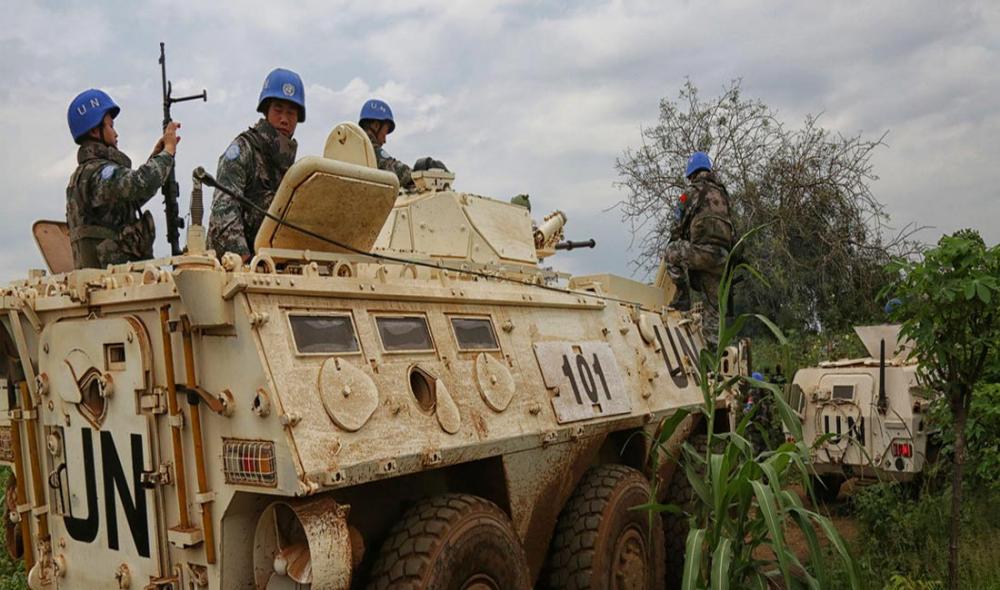Just Earth News | @JustEarthNews | 13 Sep 2018, 05:59 am Print

UNMISS
New York, Highlighting complex and evolving challenges, the head of UN peacekeeping on Wednesday called for heightened vigilance and a more robust response to existential threats against both peacekeepers and those they strive to defend.
“Improving peacekeeping is, by its very essence, a collective endeavour,” Jean-Pierre Lacroix, the UN Under-Secretary-General for Peacekeeping Operations, told the Security Council on Wednesday.
“Ensuring that our missions are fit for purpose and perform well, requires action by all of us and all of us working together,” he added, noting the role of the UN Secretariat, Member States, countries which contribute personnel, host nations and regional organizations.
In his briefing, Mr. Lacroix outlined steps taken by the Organization and the results these have yielded. One of the key areas includes assessing peacekeepers’ performance.
“We are putting in place the policies and evaluation systems that will enable all of us, collectively, to better tailor our efforts to strengthen peacekeeping and better support all peacekeepers, whether uniformed or civilian,” he informed the 15-member Council.
The engagement and the mobilization of all stakeholders, and, especially Member States, is vital for achieving success, underscored the UN peacekeeping chief.
In particular, he called on all Member States “to assess the evolution of the performance of UN peacekeeping operations”, including through visiting them on the ground and sharing their findings with the Organization.
Better training, equipment and logistics needed
He also urged those countries with advanced military capability, to provide more troops and police to UN peace operations as well as vital equipment and logistics, including helicopters, counter-IED capacities, rapid reaction forces, and medical support.
He called for troop and police contributing countries to undergo better training, prior to being deployed.
Mr. Lacroix also spoke of improvement in gender parity in peacekeeping operations – both at Headquarters and in the field – where representation of women has slightly improved.
“Women officers now represent 18 per cent of all officers in the Office of Military Affairs, and we are committed to raising this proportion further. In the field, women police officers represent 21 per cent of our Individual Police Officers, and 7 per cent of our Formed Police Units,” he said.
Concluding his briefing, he also highlighted the importance of strong partnership with civil society groups, particularly in the on-going effort to prevent sexual exploitation and abuse by UN personnel, as well as ensuring accountability and victim support. In that context, he also urged troop contributing countries to complete investigations into allegations of wrongdoing within six-months, the timeframe for UN investors to complete their work.
“Only by working together will the UN, Member States and civil society end this behaviour which irreparably harms victims and tarnishes the reputation of thousands of UN personnel who serve with honour,” he said.
Necessity for ‘robust’ safeguarding mechanisms
Speaking alongside Mr. Lacroix, Sarah Blakemore, the CEO of the non-governmental organization Keeping Children Safe, called for strong protection systems to stop abuse from happening and, should it occur, to ensure that victims are protected and supported, and bring perpetrators to justice.
“Too often victims have no way of reporting the abuse, no medical or psychosocial care and no access to justice,” she said.
“We call on world leaders to champion the safety of children at the highest levels by requiring that all organizations involved in peacekeeping implement robust international child safeguarding standards, including having advocates for victims’ rights.”
‘Action for Peacekeeping’ initiative
In March, Secretary-General António Guterres launched the Action for Peacekeeping (A4P), to strengthen global political commitment to peacekeeping operations. He also called on Member States to join him in developing a set of mutually-agreed principles and commitments to create peacekeeping operations fit for the future, with the goal of reaching a formal agreement by the end of the year.
Specific efforts include the Declaration of Shared Commitments, which has been endorsed by 55 nations (as of 11 September) as well as thematic consultations on peacebuilding; performance; protection of civilians; partnerships; and political dimensions, such as peace operation mandate and resources, role of the Security Council.
- BJP wins a seat in Bangladesh — But not the one you think!
- Meet Shabana Mahmood: Could she take over as UK’s first Pakistani-origin Muslim PM?
- Dalai Lama's Office breaks silence on Epstein claims
- Russia says suspect in shooting of GRU Deputy detained in Dubai
- Mystery gunman strikes: Top Russian General shot in dramatic Moscow incident





-1763561110.jpg)
